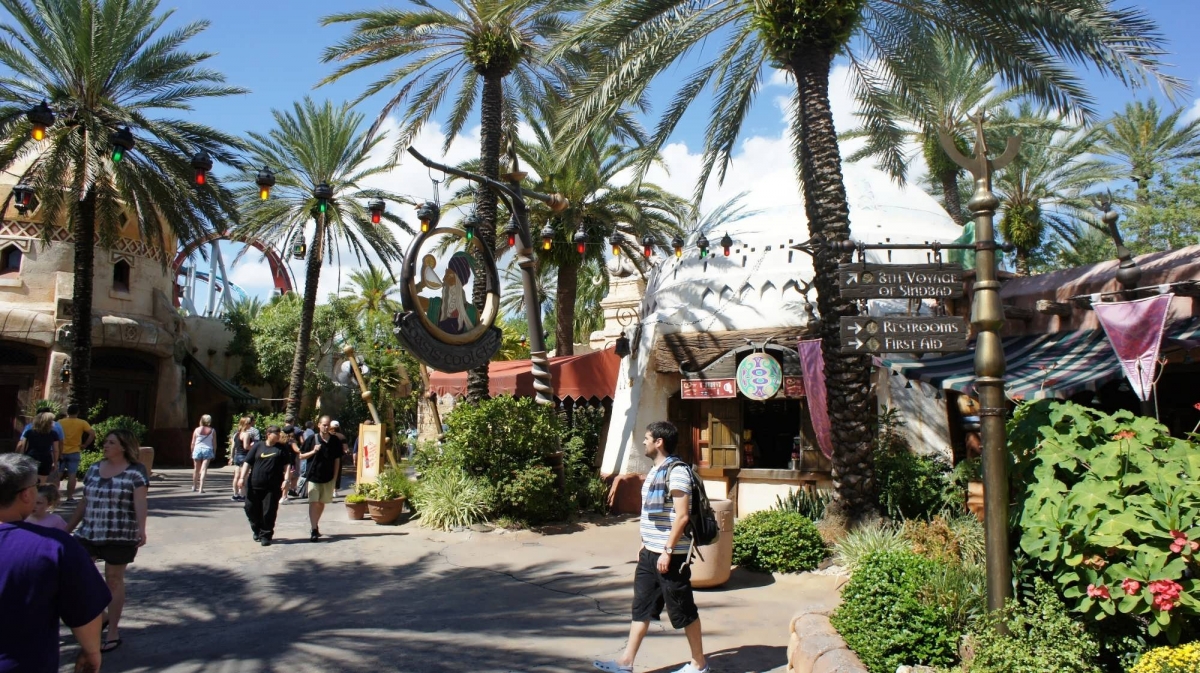Walking through the park gave me a bit of culture shock, especially because the park isn't leftover from a long time ago: it opened in 1999. Reading Edward Said's Orientalism gave me a lot of insight into how stereotypes manifested in this form. The stereotypical appearance of the park paired with its constant references to magic crossed my mind several times while I was reading through Said's paper. The park completely cashes in on the commercial aspects of Orientalism: how it's often used to sell exciting books or movies. Westerners, especially Americans, love to be cultural tourists in whatever way is most convenient. By having the "best" of Oriental culture at our fingertips without even leaving the states is the pinnacle of Orientalism: all the wild magic and mystery with none of the actual expansion of your horizons.
Sunday, March 19, 2017
Where, exactly, is this supposed to be?
Walking through the park gave me a bit of culture shock, especially because the park isn't leftover from a long time ago: it opened in 1999. Reading Edward Said's Orientalism gave me a lot of insight into how stereotypes manifested in this form. The stereotypical appearance of the park paired with its constant references to magic crossed my mind several times while I was reading through Said's paper. The park completely cashes in on the commercial aspects of Orientalism: how it's often used to sell exciting books or movies. Westerners, especially Americans, love to be cultural tourists in whatever way is most convenient. By having the "best" of Oriental culture at our fingertips without even leaving the states is the pinnacle of Orientalism: all the wild magic and mystery with none of the actual expansion of your horizons.
Subscribe to:
Post Comments (Atom)


Yikes!! I've never been to Universal Studios but that is certainly eye-opening! The ~mystical~ stereotype is an especially tiring one...I like that you included a picture, it all seems so clear now!
ReplyDeleteWhen I visited Universal Studios, I saw many of the same stereotypes. I may not have been as aware because I was very young when I visited, but now the commercial part of the Orientalism really stands out.
ReplyDelete